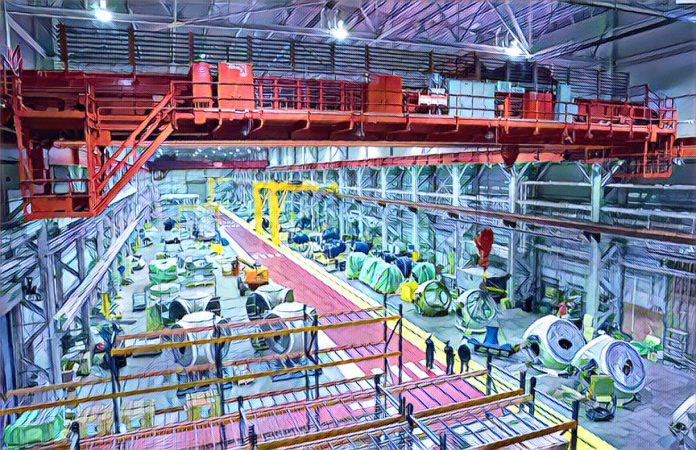Nigeria, Africa’s largest economy, is facing a crisis of industrialization as its currency, the naira, has plunged to an all-time low against the US dollar. The naira has depreciated to over N1,000/$ on the parallel market, making imports more expensive and hurting local manufacturers. The country’s industrial sector, which was supposed to be the engine of growth and diversification, has been struggling to cope with the challenges of high production costs, low demand, poor infrastructure, and insecurity.
The naira’s decline is partly due to the country’s dependence on oil exports, which account for about 65% of government revenue and 90% of foreign exchange earnings. The oil sector has been hit by the global energy transition and the COVID-19 pandemic, which have reduced demand and prices for crude oil. The Central Bank of Nigeria (CBN) has tried to defend the naira by depleting its foreign reserves and imposing multiple exchange rates, but these measures have failed to stem the slide.
The weak naira has also affected the country’s ability to benefit from the African Continental Free Trade Area (AfCFTA), which aims to create a single market for goods and services across the continent. Nigeria joined the AfCFTA in 2019, hoping to boost its exports and attract more investments. However, with a high import dependency and low competitiveness, Nigeria may be unable to compete with other African countries with stronger currencies and more developed industries.
The naira’s woes are not new. Experts say Nigeria’s industrialization drive has been hampered by decades of policy inconsistency, poor implementation, and lack of continuity. Since its independence in 1960, Nigeria has adopted various industrial policies, such as Import Substitution Industrialisation, the Nigerian Enterprises Promotion Decree, the Structural Adjustment Policy, the National Industrial Revolution Plan, and the National Automotive Policy. However, these policies have not yielded significant results, as the manufacturing sector’s contribution to GDP has remained low at around 10%.
According to the National Bureau of Statistics (NBS), growth in the manufacturing sector slowed to 2.2% in the second quarter of 2023 from 7.3% in the same period of 2010. The sector has also witnessed a wave of closures and exits by local and foreign companies, such as Unilever, Procter & Gamble, and GlaxoSmithKline. The Manufacturers Association of Nigeria (MAN) says that over 80% of the raw materials and machines manufacturers use are imported and quoted in dollars, making production unviable.
The situation has also worsened the living conditions of Nigerians, who are grappling with high inflation, unemployment, and poverty. Inflation rose to an 18-year high of 25.8% in August from 24.08% in July, driven by rising food and fuel prices. Unemployment jumped to 33% in the fourth quarter of 2020 from 27.1% in the second quarter. According to the NBS, poverty increased to 40.1% in 2019 from 38.4% in 2016.
Despite these challenges, some analysts believe Nigeria can still achieve its industrialization dream if it adopts a more pragmatic and holistic approach. They suggest Nigeria should focus on resource-based industrialization, leveraging its abundant natural resources such as agriculture, solid minerals, and gas to produce value-added products for domestic and regional markets. They also call for improved infrastructure, security, governance, and human capital development to create an environment that enables industrial growth.
Nigeria can potentially become a major industrial hub in Africa and beyond if it can effectively harness its resources and opportunities. With a population of over 200 million people and a strategic location in West Africa, Nigeria can offer a large and dynamic market for its products and services. The AfCFTA also provides a platform for Nigeria to expand its trade relations with other African countries and tap into their markets. Nigeria can also benefit from the global demand for green and sustainable products by investing in renewable energy and a circular economy.
Nigeria’s industrialization journey may be long and arduous, but it is not impossible. With a clear vision, a consistent policy framework, and a strong political will, Nigeria can overcome its current challenges and achieve its aspirations.
Source: BusinessDay



